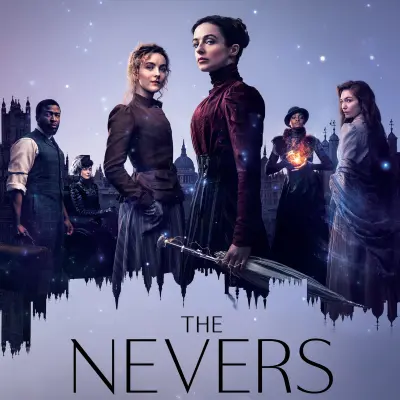Joss Whedon's final The Nevers episode was reminiscent of his past shows
-

"The Nevers has echoed many previous works of its creator, Joss Whedon, from its superheroines battling the patriarchy to its quippy, self-aware dialogue," says Alan Sepinwall of the HBO Victorian sci-fi drama's midseason finale. "Even outside the story of steampunk heroics in Victorian England, it keeps calling to mind past Whedon shows. Whedon left the series after completing principal photography on these first six episodes (and shortly before actors like Ray Fisher and Charisma Carpenter’s accusations of mistreatment by Whedon, which made him radioactive), leaving it to his actors to promote The Nevers prior to its premiere last month. Several of their interviews included a promise that this sixth episode would really wow people. Whedon-ologists may recall that this was the exact same approach he and his actors took a dozen years ago with the premiere of Dollhouse, his Fox drama starring Eliza Dushku as Echo, a woman whose memories had been erased so she could be imprinted with the skills and personality needed to handle complicated jobs for high-paying clients. It was that show’s sixth episode, too, which everyone insisted would bring the messy premise — which always felt like sex trafficking, even when Echo was performing nonsexual tasks — into clearer focus. That episode was, indeed, much better than what Dollhouse had been doing to that point, though it didn’t solve all of the series’ many narrative problems. It wouldn’t be until the season finale, 'Epitaph One' (which ironically didn’t air on Fox at all, due to a dispute over the budget), that Dollhouse felt like a show with a coherent story worth telling."
ALSO:
- Laura Donnelly on The Nevers as a feminist show: "I don’t think that we (Joss Whedon and I) ever discussed anything to do with, like, personal belief systems or anything like that," she says. "I guess it was a given that because I was there and interested in finding out about this show and hopefully as we would always think, as a woman, that I would be on the side of feminism. And I think it was just the very presence of that story itself, the characters that it was focusing on, the story it was telling about female relationships, particularly the Amalia/ Penance one, which is one of just pure love, support, sisterhood, us against the world kind of thing. It was all very much implied that what this was telling was a feminist show. I doubt that Joss or possibly really anybody, in the course of us creating this and filming this, necessarily used that specific word. It was just about telling a story where we just naturally assume that women are entitled to the same privileges as men are, front to back. So, like I said, I think it was just a given that everybody in the room, everybody on the set, everybody in the cast, everybody who had anything to do with making this, we assumed that everybody was on the side of good."
- Donnelly, Ann Skelly and Amy Manson discuss the midseason finale
- Check out The Nevers cast in character vs. real life
TOPICS: The Nevers, HBO, Joss Whedon, Laura Donnelly
